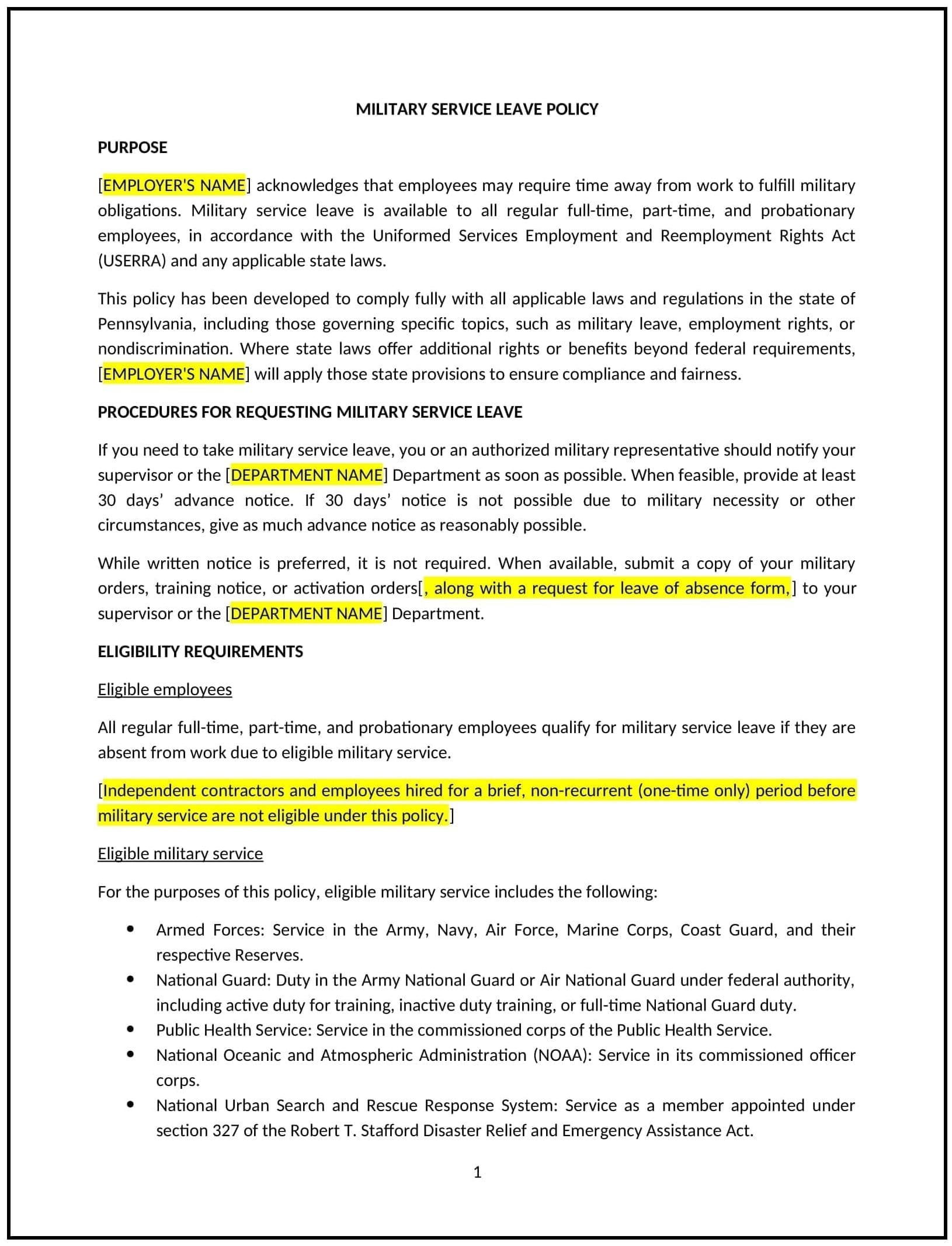Military service leave policy (Pennsylvania): Free template
Got contracts to review? While you're here for policies, let Cobrief make contract review effortless—start your free review now.

Customize this template for free
Military service leave policy (Pennsylvania)
This military service leave policy is designed to help businesses in Pennsylvania provide clear guidelines for employees who need to take leave for military duties, such as active duty, training, or reserve obligations. This template aligns with the Uniformed Services Employment and Reemployment Rights Act (USERRA) and Pennsylvania-specific laws, ensuring employees are supported while fulfilling their military responsibilities.
By using this template, businesses can promote compliance, protect employee rights, and maintain a fair workplace for all.
How to use this military service leave policy (Pennsylvania)
- Define eligibility: Clearly outline which employees are eligible for military leave, including those in active duty, reserves, or the National Guard.
- Specify leave types: Provide details on the types of military service leave covered, such as training, deployment, or emergency duty.
- Address reinstatement rights: Outline procedures for employees to return to their previous position or an equivalent role after completing their military service.
- Include benefits continuation: Specify whether health insurance and other benefits will continue during military leave and under what conditions.
- Reflect Pennsylvania-specific considerations: Tailor the policy to align with state laws, such as additional protections for National Guard members.
Benefits of using a military service leave policy (Pennsylvania)
A well-structured military service leave policy supports employee rights and workplace consistency. Here's how it helps:
- Protects employee rights: Ensures compliance with USERRA and Pennsylvania laws protecting employees who serve in the military.
- Encourages fairness: Provides a consistent approach to handling military leave requests and reinstatement.
- Maintains employee morale: Demonstrates the business’s commitment to supporting employees who serve in the military.
- Reduces legal risks: Aligns with federal and Pennsylvania-specific laws, minimizing the risk of disputes or penalties.
- Reflects local needs: Addresses Pennsylvania’s unique workforce dynamics, including National Guard and reserve obligations.
Tips for using a military service leave policy (Pennsylvania)
- Communicate the policy: Share the policy with employees to ensure they understand their rights and responsibilities regarding military leave.
- Train managers: Provide training to supervisors on how to handle military leave requests and support returning service members.
- Maintain records: Keep documentation of military leave requests, service orders, and reinstatement actions for compliance purposes.
- Support returning employees: Offer reintegration resources, such as training or counseling, to help employees transition back into the workplace.
- Review periodically: Update the policy to reflect changes in Pennsylvania laws, federal regulations, or workplace practices.